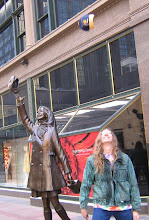Now that I'm done blogging about my blog, I suppose it's time to put some actual content up for your perusal.
In my first post, I wondered who the Venn behind the Venn Diagram was. As my curiosity was piqued, I had no choice but to do some exhaustive research at Wikipedia. My findings have proven to be quite controversial.
John Venn was an English philosopher and mathematician who currently is the subject of a not very interesting Wikipedia stub. His most famous contribution is the Venn Diagram, which consists of upwards of three overlapping circles, and his impact has been felt in many diverse fields, such as computer science, probability, and education in the form of simple worksheets for lazy teachers.
The controversy comes in at the end of the stub, when they reveal that Venn has been voted the third most important modern mathematician by the BBC, narrowly losing to Isaac Newton and Leonhard Euler. Newton is the father of modern physics. Euler's collected contributions to math fill 60 to 80 volumes. Venn wrote three books on logic and probably doodled a couple of circles on a piece of paper while he was bored at work one day and called it a diagram. John Venn is probably the most overrated mathematician of all time, unfit to sharpen pencils for Newton and Euler. I know overlapping circles can't be that powerful because David Copperfield rips them apart at least four times in every show he does. I think Venn should rank somewhere closer to Ian Malcolm than Isaac Newton.
Also, Wikipedia's homepage mistranslates "The Free Encyclopedia" into Spanish. It should be "La enciclopedia gratis" instead of "La enciclopedia libre", which suggests "The Liberated Encyclopedia" as opposed to "The Encyclopedia You Don't Have To Pay For." I'm just going to assume that the same holds true for French, Italian, and Portuguese. You'd think that a project that looks to one day contain all the knowledge in the world would at least get Page 1 correct.
Subscribe to:
Post Comments (Atom)

1 comment:
Joe says that Wikipedia is liberated from the bonds of capitalism, and thus, libre is appropriate.
Post a Comment